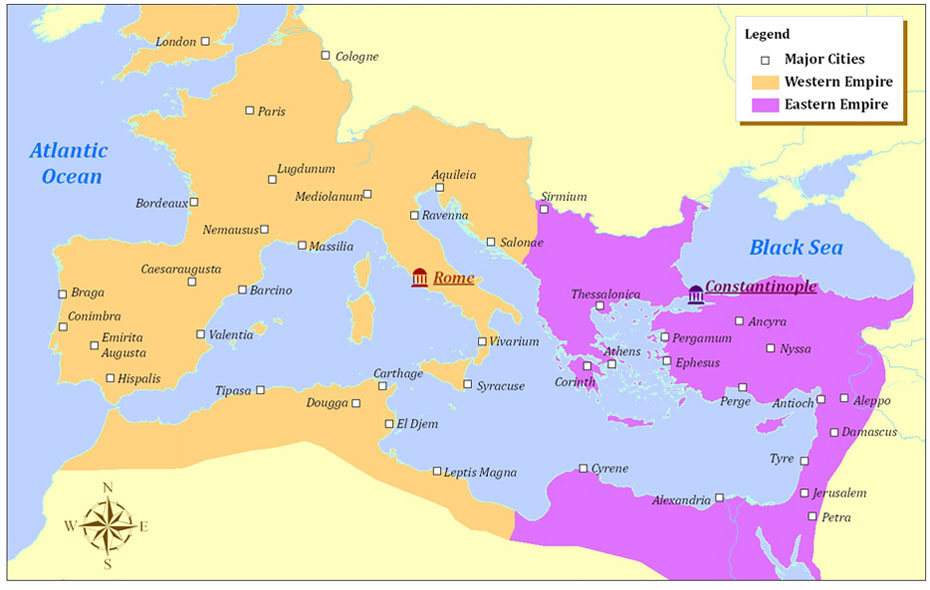Chapter 1: Name this empire
The Roman Empire
Chapter 3:
True or False: The church was the center of life in medieval western Europe.
True
Chapter 5:
One of the major causes for the decline in feudalism came from a decline in population. What deadly plague swept through Europe, claiming 24 million people's lives?
The bubonic plague; "The Black Death"
Chapter 7:
Born in Makkah, ____________, the prophet of Islam heard the voice of God while meditating in a cave in the mountains.
Muhammad
Chapter 11:
Name one of the three great empires to arise in Western Africa.
Ghana, Songhai and Mali
Chapter 2:
In Europe during the middle ages, the ________ was at the top of the society pyramid, with nobles pledging their loyalty to protect them and their lands.
Monarchy; King or Queen
Chapter 3:
What is/was the purpose of a "pilgrimage"?
A pilgrimage was a journey taken to visit holy sites (Jerusalem, churches) to see relics, prove devotion to God, in hopes of having their illnesses cured, or as penance for their sins.
Under the decline of feudalism, commoners' rights expanded and "people could no longer be _______ or ________ for no legal reason."
jailed; executed
Chapter 8:
The holy book of Islam is the _______.
Koran/Qur'an
Chapter 11:
"In the north, West Africa begins in the _________ desert."
Sahara
"For 500 years, from about 500 B.C.E to ________, the city of Rome was the capital of the greatest empire the world had ever seen."
476 A.D
Chapter 3:
"In 313 C.E., the Roman emperor _________ issued a decree allowing Christians to practice their religion freely."
Constantine
Chapter 5:
Between 1337 and 1453, _______ and ________ fought a series of battles for control over lands in France."
England and France
Chapter 8:
There are _____ ________ of Islam: declaration of faith, prayer, charity, fasting, and pilgrimage to Makkah.
Five Pillars
Chapter 13:
"In 1312, a new leader, ______ ______, took over in Mali. He became the first West African ruler to practice Islam devoutly."
Mansa Musa
Chapter 1:
Under Roman ideals, every Roman citizen in the empire had natural _________ guaranteed to them by law.
Rights
Chapter 4:
"During the Middle Ages, most school took place in _________, _________, and __________."
monasteries, convents, and cathedrals
Chapter 6:
Emperor Constantine chose this site to be the new capital of the Byzantine empire. Surrounded on three sides by water, and fortified by strong walls, this city on the water discouraged invaders by land and sea.
Constantinople
Chapter 9:
"Muslims created distinctive forms of architecture. A particularly important type of building was the Muslim house of worship: the _______."
mosque
Chapter 11:
A prize or payment given or accepted by a conquering or conquered peoples as a sign of accepting a king's authority is known as a _________.
tribute
Chapter 2:
"By the High Middle Ages (about 1000 C.E.), Europeans had developed the system of _________ by providing people with protection and safety by establishing a stable social order."
Feudalism
Chapter 4:
The word "holiday" comes from "_____ _____."
holy day
Chapter 6:
"Over time, the Byzantine Church separated from the Church in Rome and became known as the Eastern Orthodox Church. The word orthodox means _________________."
"in agreement with right belief"
Chapter 9:
Caliph al-Mansur moved the capital of the Islamic empire from Damascus to _________ in present-day Iraq. Once a village, this city flourished into one of the world's largest cities.
Baghdad
Chapter 14:
"_______ are poet-musicians who tell stories, sing songs of praise, and recite poems while playing traditional instruments. They also held village records and historical accounts."
Griots